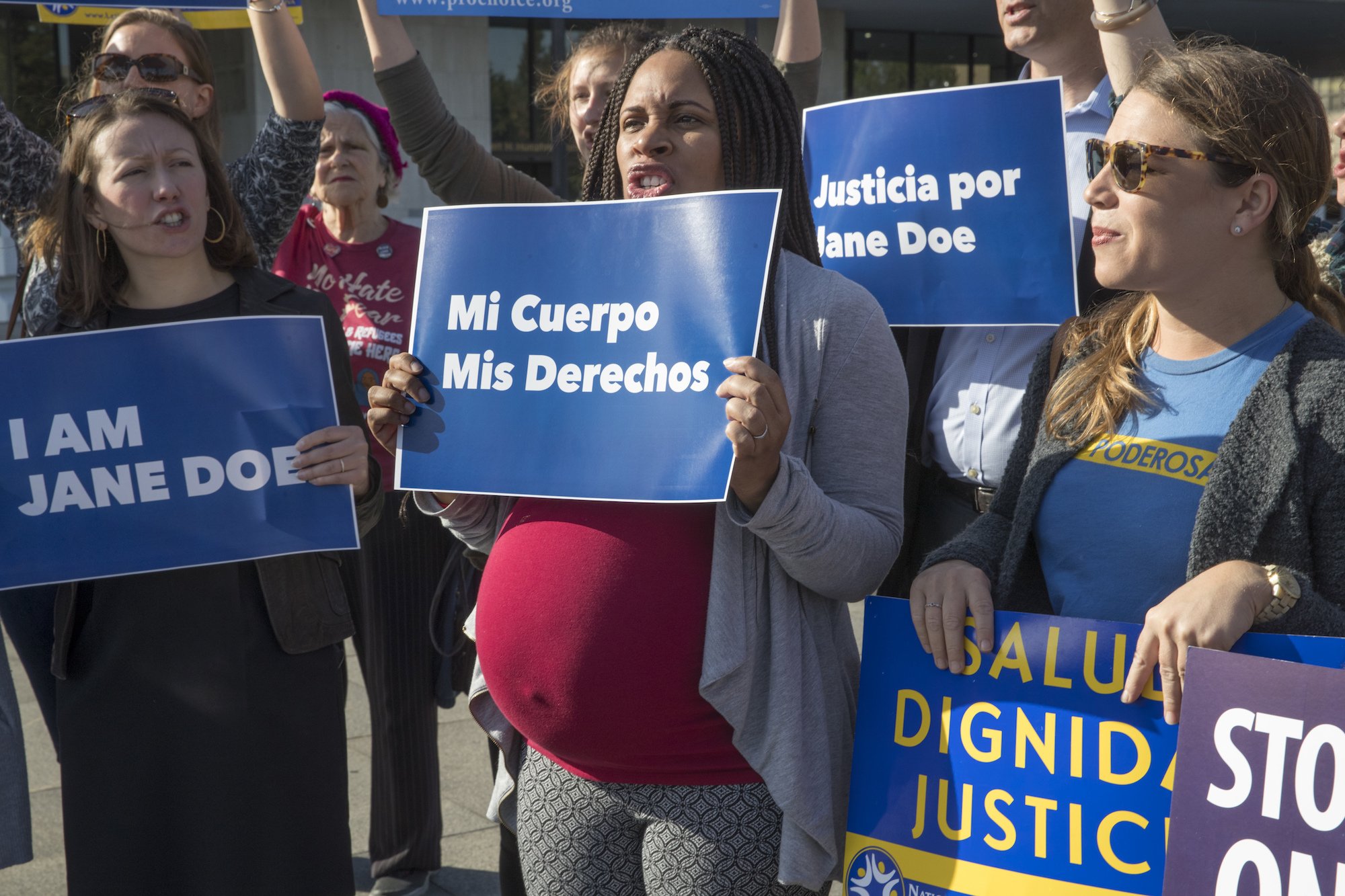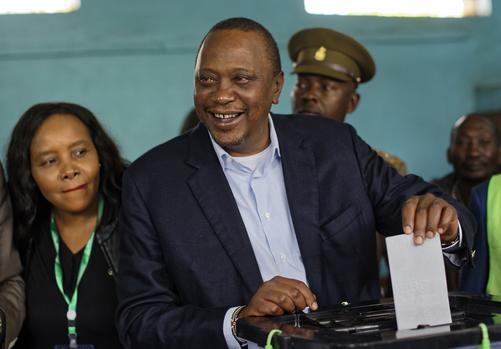A 17-year-old girl was apprehended as she illegally crossed into America from Mexico. Now nearly 16 weeks pregnant, the girl—known as Jane Doe or J.D. to protect her privacy—would like to have an abortion.
But her custodian at a detention centre in Brownsville, Texas—the Department of Health and Human Services (HHS)—is refusing her request. The government will “protect the well-being of this minor and all children and their babies in our facilities”, an HHS spokesman explained. “[W]e will defend human dignity for all in our care.” On October 18th, a federal judge instructed the federal government to grant J.D.’s wish, but two days later, a three-judge panel on the Court of Appeals for the District of Columbia Circuit froze that order until October 31st by a 2-1 vote.
If by that date the authorities have not found a sponsor “capable of providing for the child’s physical and mental well-being” who could help her procure an abortion, the court held, J.D. may return to court to plead her case anew.
Meanwhile, via her lawyers at the American Civil Liberties Union (ACLU), J.D. is asking the appeals court to reconsider her case “en banc”—with the full complement of judges. Time is of the essence: while bureaucrats and judges wrangle over her fate, J.D.’s pregnancy rolls toward 20 weeks, the point at which abortion is no longer available in Texas. The ACLU told the appeals court on October 22nd that its panel decision “violates decades of well-settled Supreme Court precedent” barring the government from imposing “an undue burden on—or, as in this extraordinary case, completely block[ing]—a woman’s ability to obtain an abortion”.
The holding pattern for J.D. began nearly a month ago. “All the while, this young, isolated woman remains pregnant against her will, causing her irreparable harm”, the ACLU wrote. Every day, J.D. faces a “severe strain…both physically and emotionally” and abortion becomes a riskier, more fraught procedure.
The young woman’s lawyers ask the federal government to simply get out of the way: “Her court-appointed representatives or the shelter personnel stand ready to transport her; the health centre stands ready to provide the care; and private funds have been provided to pay for the procedure”. In sum, “[a]ll defendants must do is to step aside and stop blocking the door”.
The ACLU brief includes a few lines from a stinging opinion penned by Judge Patricia Millett, the dissenter in the appeals court ruling on October 20th. The government’s refusal to grant the young woman’s wish “sacrifices” her “constitutional liberty, autonomy and personal dignity for no justifiable governmental reason”, Judge Millett wrote. Its decision represents “an astonishing power grab”, ignoring the fact that “this child fled here all alone in a desperate effort to avoid severe abuse” and embarked on “a life-imperiling trek for hundreds, perhaps thousands, of miles”. J.D. and other “[u]naccompanied minor migrants are among the most vulnerable persons in the world”.
In its response to the young woman’s request for a court-wide re-hearing, the Department of Justice (DoJ) raised three curious points—none of which, interestingly, denies that J.D. has a right to an abortion. First, the DoJ explained that if J.D. were to find a sponsor she would be able to seek an abortion under his or her care and the complaint against the government would dissolve. But as the ACLU observed, “the notion that an appropriate sponsor for J.D. could be identified, properly vetted, and approved in an eleven day time frame is entirely unrealistic”. Second, the DoJ argued that J.D. brought her predicament on herself. “Any alleged ‘obstacle’ to Ms Doe’s ability to obtain an abortion is by her own choice”, the brief asserts. She chose to flee oppression in her home country and enter America illegally, so she is author of her own dilemma. The obstacle to her abortion is self-imposed. J.D. can decide to remove that obstacle “at any time by filing a request for voluntary departure”.
This is a glaring insult to the young woman. Start with the implication that J.D. would enjoy the autonomy to have an abortion if only she were to give up on America and return to her home country: a choice between forced motherhood and a bus-ride back to the place she took great pains to escape. Actually, it is worse: in Mexico, where J.D. seems to be from (this information is sealed), she would not be able to secure a legal abortion at all. Self-deportation, then, would almost certainly be a lose-lose scenario.
The most jarring feature of the government’s argument comes near the end of its brief when it advances a novel theory of government “complicity” in acts it finds reprehensible. Why does the Office of Refugee Resettlement refuse to release J.D. to court-appointed representatives to travel to a nearby abortion clinic? Because that would “entail facilitating an abortion”, the DoJ brief reads. Even if HHS does not drive J.D. to the clinic or pay for the procedure, approving such a release “would still require that HHS or its contractor devote time and staff towards maintaining appropriate custody over Ms Doe during her absence” and necessitate “expend[ing] resources to monitor” her health. Permitting J.D. to exercise her constitutional right to end her pregnancy would “require the federal government to be complicit in her abortion, which the government has a significant and legitimate interest in refusing to do”.





